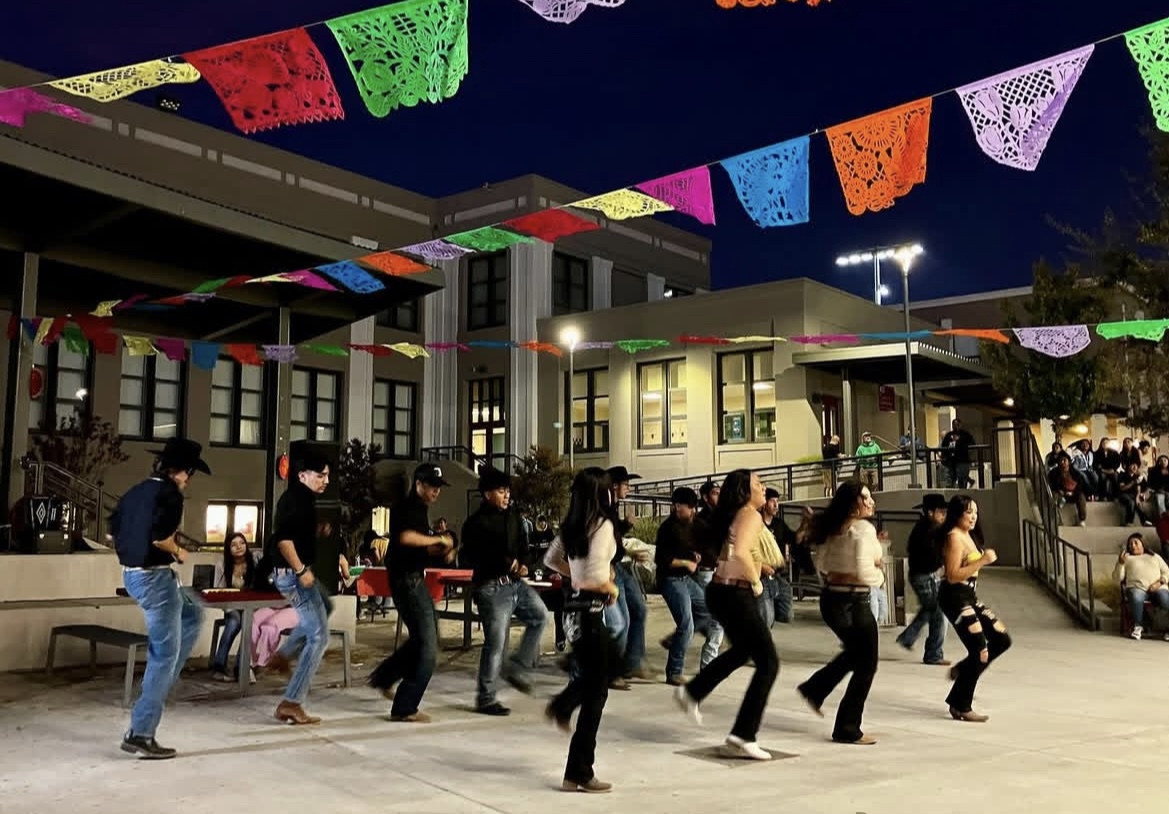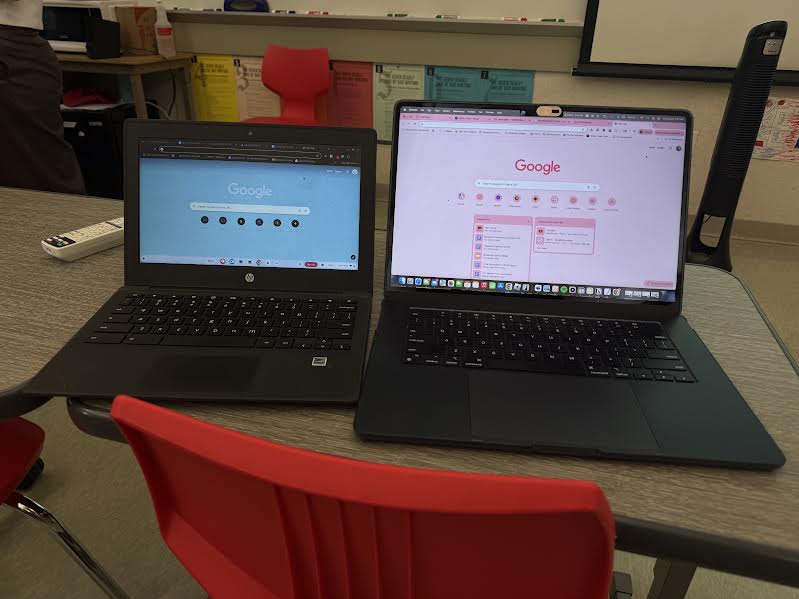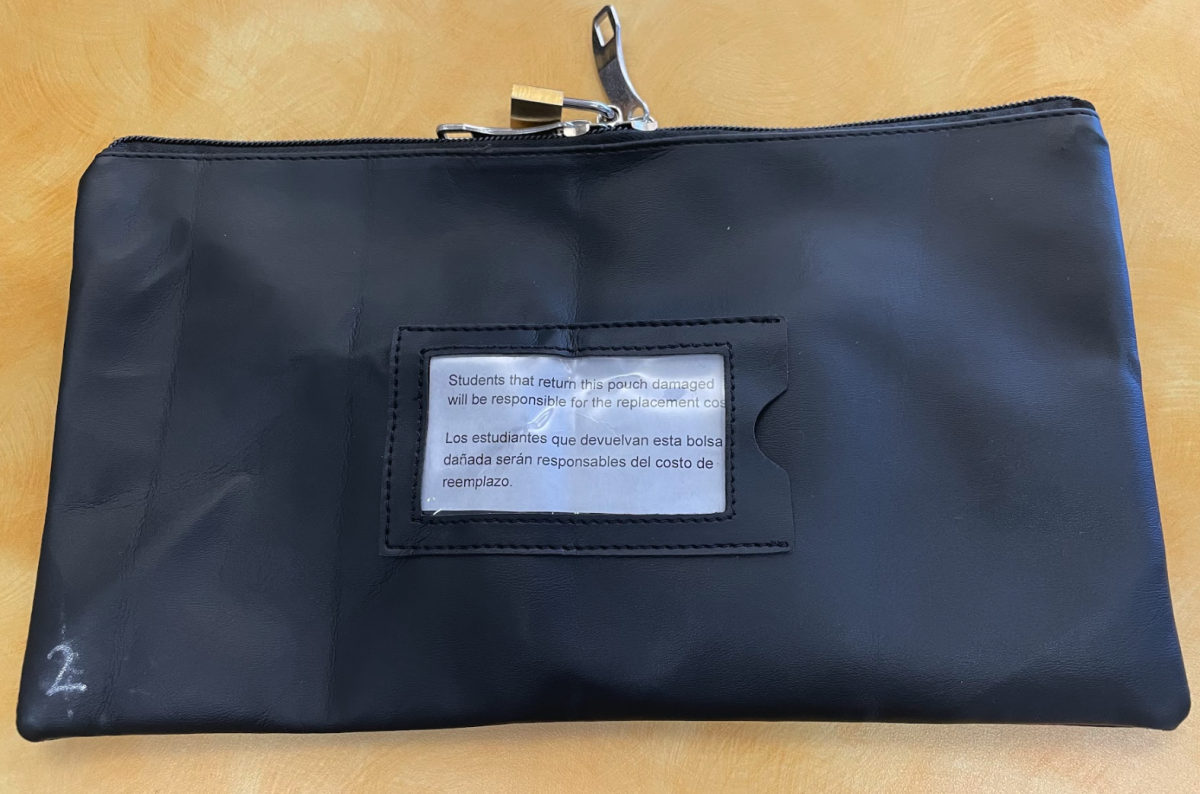The 2023-24 San Rafael High School school year started off with an unexpected influx of new policies and procedures all throughout the campus. One of the most important is a new policy for cell phone use in class.
The phone policy requires students to put their phone in a pocket organizer once they enter class and can only retrieve it at the end of class. If a student is disregarding this policy and using their phone in class, teachers are required to report them, causing their phone to get locked inside a pouch, which can only be unlocked by the office at the end of the school day.
This new policy and punishment was created in hopes to end the major problem of phone usage during class lectures that has unfortunately been a huge issue for many years now. However, teachers and students appear to hold slightly different opinions about this policy.
“Many students refused to stop using their phones and became argumentative when asked to stop or hand over their phone,” said Ms. Saysette, referring to the way things were before. However, with the new phone policy, that problem came no more. And many teachers believe that this policy has been the best thing to happen that efficiently fixes the phone problem:
“It’s excellent and long overdue. I’m already seeing improvements in behavior and academic performance,” said Mr. Hunt.
“The phone pocket policy has had instant results, and the classroom culture has drastically improved in comparison with the past few years,” said Mr. Bond.
“Students are now immune to the incessant ping, ding, flash, and buzz of the technological parasite in their pocket,” said Ms. Kilgariff.
Before, teachers had to keep reminding their students of the no phone rule and keep on asking politely for them to put their phones away in their backpacks. But at the end of the day, the class rules kept getting ignored by several of their students and in fact many teachers like Saysette recall getting into arguments with their students about the rule, taking up even more class time.
Many teachers also noticed that the lack of participation and communication in the past couple of years, suddenly improved immensely with this new policy.
“Students weren’t communicating with each other or their teachers except online. It was like a zombie apocalypse, [but] I have seen a huge improvement in student engagement this year! Students are happier! They are speaking to each other and to me!” Ms. Saysette said. Many teachers expressed the same excitement for this school year now that more students are engaging in class way more than before.
Students acknowledge the phone problem from the past few years, but still find the policy a bit annoying to deal with.
“I like it, but I don’t like it at the same time because not everyone is like that, you know. Everyone got punished for those kids that wouldn’t put [their phone] away so it is not fair for everyone, but there are more people who pay more attention and [participate] more now,” said Debanhi Mendez, a senior at SRHS.
Even though students know that the policy helps in the most part, some students also believe that the new policy is a bit pointless since phones are not the only electronic device a student can use to distract themselves.
“I think it was necessary for the students who use [their phone] a lot so they can at least be somewhat focused in class, [but] there are still going to be students that will find distractions either way, like yeah, they took away one distraction, but there is always going to be other ones,” said Jaylee Avalos, a senior.
“It’s kinda valid, but I feel like it doesn’t make any sense cause kids will still find a way to text each other,” said Emily Chacon, a junior.
But what seemed to annoy students the most is the pouch punishment. There is a lot of strong hate towards it saying there are better punishments that don’t involve the risk of something happening during the time you had zero access to their phone.
“It’s kinda dumb because they should just take it away or place their phone in the cubby for the rest of the class and not have them put it in the pouch because what if there’s an emergency,” argued Ashlyn Ochoa, a sophomore. “You won’t have access to your phone if it’s locked inside the pouch.”
“What if something happens and I need to call someone or I need to text someone or let’s say there is a student with a medical condition and they need to call someone if something happens,” Jaylee also mentioned. “So if they don’t have access [to their phone] what do you do then?”
Mr. Dominguez says that students should factor in these worries when they choose to use their phones during class.
“In the event of an emergency, staff are available to assist,” he said. ”Students with medical conditions can work directly with the office for appropriate accommodations.”
Plus, according to Dominguez, only an average of five phones are “locked up” per day.







































